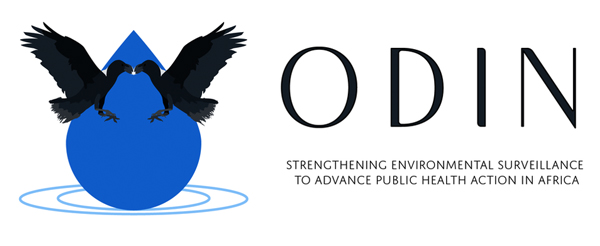Lund University (LU) is one of Scandinavia’s leading research institutions, with a strong commitment to tackling global health challenges through science and international collaboration
Within the Faculty of Medicine, researchers in Experimental Infection Medicine focus on understanding how infectious diseases emerge, spread, and can be controlled. Their work combines basic science with applied research, aiming to develop more effective methods for detecting, diagnosing, and monitoring infections.
This approach has become increasingly important as new and re-emerging diseases continue to threaten global health. Mpox is one such example. Once regarded as a rare and mostly regional disease, mpox has gained global attention in recent years, exposing gaps in how health systems detect and respond to outbreaks.
At LU, researchers have taken on a leading role in building projects that not only generate new scientific knowledge but also strengthen the capacity to prevent and manage outbreaks where they occur.
Experimental Infection Medicine at Lund University
The research at LU in Experimental Infection Medicine is centred on the interaction between pathogens and their human hosts. By studying infection at molecular, cellular, and immune system levels, researchers aim to understand why infections develop the way they do and how the body responds. This knowledge is then used to design practical solutions, such as new diagnostic tools or improved strategies for outbreak surveillance.
A key part of the work is to create flexible diagnostic platforms that can be quickly adapted to new pathogens. The aim is to move beyond traditional laboratory-bound solutions and design systems that can also work in resource-limited environments. This focus ensures that research outcomes can be applied in real-life settings, making a direct contribution to global health security.
The ODIN and ODIN-Mpox Projects
Against this backdrop, LU is coordinating two major initiatives: ODIN (Outbreak Detection and Innovation Network) and ODIN-Mpox. Both projects highlight LU’s role as a leader in developing scientific approaches and international partnerships to address epidemic threats.
ODIN is designed to build genomic surveillance capacity in sub-Saharan Africa. By supporting laboratories, training researchers, and introducing innovative technologies for pathogen detection, the project helps ensure that outbreaks can be identified and tracked in real time. This not only improves local readiness but also contributes to global monitoring systems.
ODIN-Mpox extends this effort with a specific focus on mpox. The project brings together an international consortium of partners, including:
- The Global Health Network, University of Oxford (UK)
- University of Kinshasa (Democratic Republic of Congo)
- Finnish Institute for Health and Welfare (THL, Finland)
- University of Helsinki (UH, Finland)
- NORCE Norwegian Research Centre (Norway)
- VIB (Belgium)
- Ghent University (UGent, Belgium)
- National Institute for Medical Research (NIMR, Tanzania)
- Institut de Recherche en Sciences de la Santé – Direction Régionale du Centre-Ouest (IRSS-DRCO, Burkina Faso)
Together, this network investigates the epidemiology and transmission of mpox, develops better tools for diagnosis and surveillance, and shares findings in both local and international arenas.
The Democratic Republic of Congo plays a central role in this research, as it remains one of the regions most affected by mpox. By working directly with researchers and communities in the DRC and other African countries, the project ensures that the science addresses real-world needs. At the same time, collaboration with European partners and The Global Health Network connects the work to global platforms for data sharing and knowledge exchange, thereby amplifying its impact.
Partnership and capacity building
The strength of ODIN and ODIN-Mpox lies in their focus on partnership. Rather than a one-way transfer of knowledge, the projects are built on collaboration and co-creation. Training programs, joint publications, and shared data ownership ensure that local researchers and institutions in Africa are central to the work.
This model of collaboration helps build long-term resilience. It enables health systems in affected countries to respond more effectively to outbreaks, while also fostering a research environment that benefits both local and global communities. For LU, the projects represent not just scientific progress but also a commitment to equity in global health.
Looking forward
Lund University will continue to combine scientific research with global engagement to address infectious diseases. The work in Experimental Infection Medicine provides the scientific foundation, while projects like ODIN and ODIN-Mpox demonstrate how this science can be applied in practice in collaboration with international partners.
While mpox is a current focus, the broader goal is to be better prepared for the next infectious threat—whatever it may be. This requires both strong science and strong partnerships. By working together across continents and disciplines, LU and its partners aim to build the knowledge, tools, and capacity needed to protect global health today and in the future.


